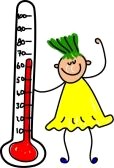Cayman free of three childhood diseases
 (CNS): Local public health officials believe that the Cayman Islands is now free of measles, rubella and congenital rubella syndrome (German measles). With no new cases reported during the past ten years of any of three and even longer in the case of measles, the public health department says it is in a position to certify the islands free of the diseases. To make sure that it research and statistics are correct anyone who has been medically diagnosed with either condition in the last three years, is asked to contact health officials with the details. “Our records indicate that there were no measles cases since 1991 and no local incidents of rubella since 2001,” Dr. Kiran Kumar Medical Officer of Health has announced.
(CNS): Local public health officials believe that the Cayman Islands is now free of measles, rubella and congenital rubella syndrome (German measles). With no new cases reported during the past ten years of any of three and even longer in the case of measles, the public health department says it is in a position to certify the islands free of the diseases. To make sure that it research and statistics are correct anyone who has been medically diagnosed with either condition in the last three years, is asked to contact health officials with the details. “Our records indicate that there were no measles cases since 1991 and no local incidents of rubella since 2001,” Dr. Kiran Kumar Medical Officer of Health has announced.
The last case of Congenital Rubella Syndrome (passed on to a new- born if the mother was infected with rubella virus during pregnancy) occurred in 1996. Further, 37 health and educational professionals from private and public sectors have verified that they have not seen any cases of these conditions in Cayman during the last decade. Similarly, a review of medical records for the past five years, revealed no cases of Congenital Rubella Syndrome.
“Based on the documentation and verification, we are of the view that we have interrupted the occurrence of endemic measles and rubella viruses and subsequently, congenital rubella syndrome (CRS) in the Cayman Islands,” Dr. Kumar said.
“We are ready to submit our report to the Pan American Health Organisation in order to get certified that these conditions are eliminated in Cayman,” he added.
But to ensure no cases are missed, he again urges anyone who has been diagnosed in the last three years as having any of the three conditions, to contact him on 244-2621 or Public Health Nurse Alice-Jane Ebanks on 244-2627.
Measles and rubella manifest with fever and rash. Both are transmitted from person to person via the respiratory route, including coughing and sneezing. These two conditions are under surveillance in the Cayman Islands. Any case of fever and rash is suspected as being measles or rubella and given blood tests to confirm or rule out the disease.
Before immunization, they were pernicious diseases infecting almost everyone in early childhood. While generally they are mild diseases, complications and deaths can arise from measles, while congenital rubella syndrome manifests as congenital heart defects, congenital cataracts or hearing impairment in the newborn of a mother infected with rubella virus during pregnancy.
CARICOM Ministers of Health met in 1988 and declared that indigenous measles should be eliminated in the Caribbean Sub-region by 1995. Therapid reduction of rubella cases in the sub-region led the Council for Human and Social Development of the Caribbean Community in April 1998 to pass the Resolution on the Eradication of Rubella (and therefore Congenital Rubella Syndrome) by the end of 2000.
The MMR vaccine that protects against measles, mumps and rubella was introduced into the local childhood immunization programme in 1983 and offered at 15-months of age. A recent audit of the records of children born in 2007 and 2008 showed that about 99 percent of Cayman’s children are immunized with MMR vaccine.
Following the elimination of measles virus circulation in 2002 in the Americas and in light of the achievements in the implementation of vaccination strategies and the accelerated reduction in the number of rubella cases, during the Pan American Sanitary Conference in October 2007, a resolution was passed urging PAHO/WHO Member States to establish National Commissions (councils) to document and verify elimination in each country of the region.
Category: Health

